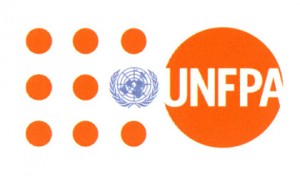 The 2014 UNFPA State of the World Report has called for urgent investment in young people so they could engage meaningfully in their communities and in the development of their nations.
The 2014 UNFPA State of the World Report has called for urgent investment in young people so they could engage meaningfully in their communities and in the development of their nations.
The report shows that the returns on investments in young people, particularly young women and adolescent girls, could be enormous with the potential to catapult developing economies forward and eliminate extreme poverty which would remain a central objective of the next generation of development goals to succeed the Millennium Development Goals in 2015.
It said that with the right support to reach their full potential, young people could become a formidable force of productivity, innovation and creative dynamism to accelerate development.
The 126-page Report, launched in Accra on Monday, is on the theme: “The Power of 1.8 Billion: Adolescents, Youth and the Transformation of the Future”.
Mr Babatunde Ahonsi, UNFPA Representative in Ghana, said this year’s report was focusing on the youth who formed 25 per cent of the world’s total population of 7.3 billion.
He explained that the annual report was earlier launched at the global level in November but UNFPA decided to also launch it in Ghana to bring home the discussions of the findings of the report.
Mr Ahonsi said the so many young people living in the world today should be seen as a potential for economic and social progress and that the African Continent needed to significantly invest in the youth now to enable them to meet their needs and aspirations and enjoy their rights.
He said there had been some advancement in youth development on the African Continent but that had been largely inequitable and, therefore, the need for a progressive agenda beyond 2015.
“This need is especially urgent as the demographic experts have informed us that now is the time for Africa to act to make youth a real priority in order to reap what they call a demographic dividend.
“Adolescent health, education and livelihoods will indeed accelerate the progress we all desire. If these needs of such a group are not met, Africa not only misses an opportunity to rise but falls into economic and social retrogression,” Mr Ahonsi said.
Professor Stephen Kwakye, a Senior Lecturer at the University of Ghana, who presented the highlights of the report, said young people matter because apart from their huge numbers, they were the shapers and leaders of the global future.
He said unfortunately, young people were often overlooked or forgotten in a world of adult concerns, a situation that needed urgent attention.
Prof. Kwakye said the report indicated that the huge numbers of the youth could be a challenge but also presented a possibility to make some gain in the world.
The report said about nine out of 10 people between the ages of 10 and 24 lived in less developed countries, including Sub-Saharan Africa.
Prof. Kwakye noted that such huge numbers of young people of the world presented the challenges of increase in homicide and crime rates, gender gaps and inequality, and higher adolescent birth rates, among other things.
He, however, said that the numbers also presented Africa, which had more of the world’s young people, the opportunity to build the capacity for the youth through education, create an environment where the youth could flourish, as well as prioritise science, technology and innovation.
He said African leaders should further keep the promises to commit to the rights of the youth and also mobilise political will in ensuring an overall population in good health, economic transformation with the youth at the centre as well as a high standard of governance and credibility with strong youth participation in decision-making.
Mr Mahama Ayariga, Minister of Youth and Sports, who launched the report, said government considered the youth as “not only the future but also the present,” that was why it continued to embark on various programmes aimed at developing the potentials of young people, and offering them opportunities to develop.
He said over the past decades, Ghana’s education sector for instance had been receiving the largest budget allocation, all geared towards making the learning environment conducive to attract young people develop their potentials.
Mr Ayariga, therefore, lauded the UNFPA for the report and said it would help inform government policies as well as assist the private sector to strategise programmes for youth development.
Source: GNA























